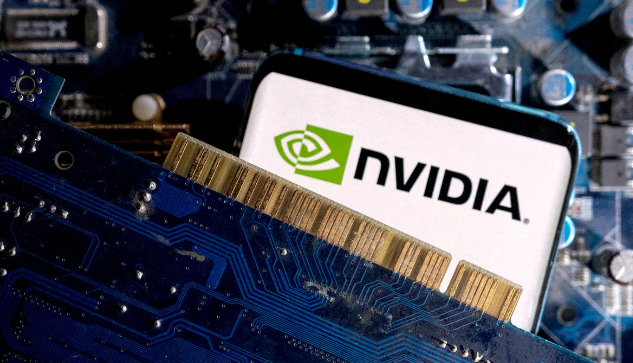This Firm's Workers Are Millionaires. But They Are Too Busy To Enjoy Wealth
- Pio Marmaï

- Aug 27, 2024
- 3 min read
It’s a summer day in Santa Clara, California, and an assortment of luxury cars — Porsches, Corvettes, Lamborghinis — take up parking spots previously occupied by humbler models. Some have new paint jobs in the lime green from Nvidia Corp.’s logo. And they are stuck where their owners want to be: at the office.

Nvidia stock has gained 3,776% since the start of 2019 as the company benefits from selling the main chip necessary for artificial intelligence work, minting many new multimillionaires in the process. But the work hours are just as gruelling and high-stress, current and former employees said, leaving little time for the jet-setting, homebuying and leisure many can now afford. A culture problem is brewing, said the 10 people, who asked not to be identified for fear of retribution.
The 31-year-old chipmaker has piled on market cap faster than any other company in history. Founder and Chief Executive Officer Jensen Huang has established expectations of scrappiness and overworking, with a chaotic structure where one manager can have dozens of direct reports, the current and former employees said. Rather than firing employees like his competitors, Huang has said he prefers to “torture them into greatness.”
Nvidia hasn’t had any trouble keeping its employees in recent years, in part because its stock grants typically vest — or become available — over a four-year period, giving workers incentive to stay to earn their whole pay package. In 2023, 5.3% of employees left the company, but after its valuation topped $1 trillion, that same turnover rate dropped by nearly half, to 2.7%, according to its 2024 sustainability report. The overall semiconductor industry’s turnover rate is much higher, at 17.7%, according to Nvidia.
The tech industry trope of “resting and vesting” is so common it was ridiculed by Hollywood in HBO’s “Silicon Valley” show with a character who squanders away his time playing video games and drinking big sodas waiting for his stock to vest. But it doesn’t work at Nvidia. One current employee said it would be embarrassing and even socially difficult to coast.
Those who tried have become the subject of internal critique. During a staff meeting late last year employees complained to Huang that some of their colleagues were in “semiretirement” mode, according to a former employee who attended the meeting.
Those who have been at the company for close to a decade would have more than enough money to retire, according to a former engineering employee who left the company in June. Many don’t, though, because there are millions more waiting when the next stock grant vests, the person added.
The explosive stock rally also means that many Nvidia employees are sitting on bigger nest eggs than peers at other chipmakers. Chief Financial Officer Colette Kress, who joined the company 11 years ago, owns stock worth about $758.7 million. Her Intel Corp. counterpart Dave Zinsner, who has a larger pay package but has a shorter tenure, owns stock worth just $3.13 million. At Advanced Micro Devices Inc., Nvidia’s nearest rival, which has also seen rapid share growth, CFO Jean Hu, who joined in 2023, owns stock worth $6.43 million.
The former engineering employee who asked not to be named said that, throughout 2023 and 2024, working at Nvidia meant encountering frequent expressions of wealth among employees of virtually all seniority levels. He said he regularly saw coworkers surfing Zillow and alluding to new vacation homes in casual conversation. He added that it’s become common for employees to attend big-ticket sporting events like the Super Bowl and the NBA Finals.
But the ex-marketing employee warned that Huang’s flat corporate structure sometimes works differently than intended. She said that in her experience, because of the company’s structure, people are incentivized to fight for Huang’s attention rather than work together toward Nvidia’s long-term success. The same structure applies to those far below Huang — the former technical support employee said his supervisor had more than 100 people directly reporting to him.
At a certain point, with a certain amount of money, the stress starts to lose its appeal.



Comments